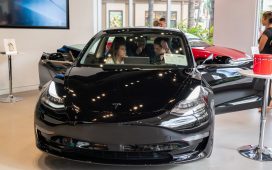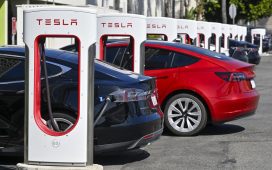VW, the world’s biggest carmaker, announced last month that it would need to adjust first-quarter manufacturing plans around the globe because of the shortage. The amount of VW car output lost could be in the low six-digit range, according to people familiar with the matter.
Suzuki Motor Corp. also is altering production, though there’s no plan at this point to idle factories, a spokesperson said. A Subaru Corp. representative said it’s been dealing with some parts-supply delays and may adjust output.
“The spread of the coronavirus has impacted procurement in semiconductors and related parts,” a Honda spokesperson said in a statement Friday. “We will address this issue by adjusting production and replacing car models.”
Nissan’s Oppama plant in Japan will reduce Note production this month, a spokesperson said, without giving details. The Nikkei said the company would cut output to 5,000 cars a month, from 15,000.
Robert Bosch GmbH and Continental AG, two of the world’s largest auto suppliers, acknowledged the chip shortage last month after VW’s announcement.
BMW AG said the automaker is in regular contact with its suppliers over the issue, though it hasn’t yet had to reduce or stop car production.
First warnings








